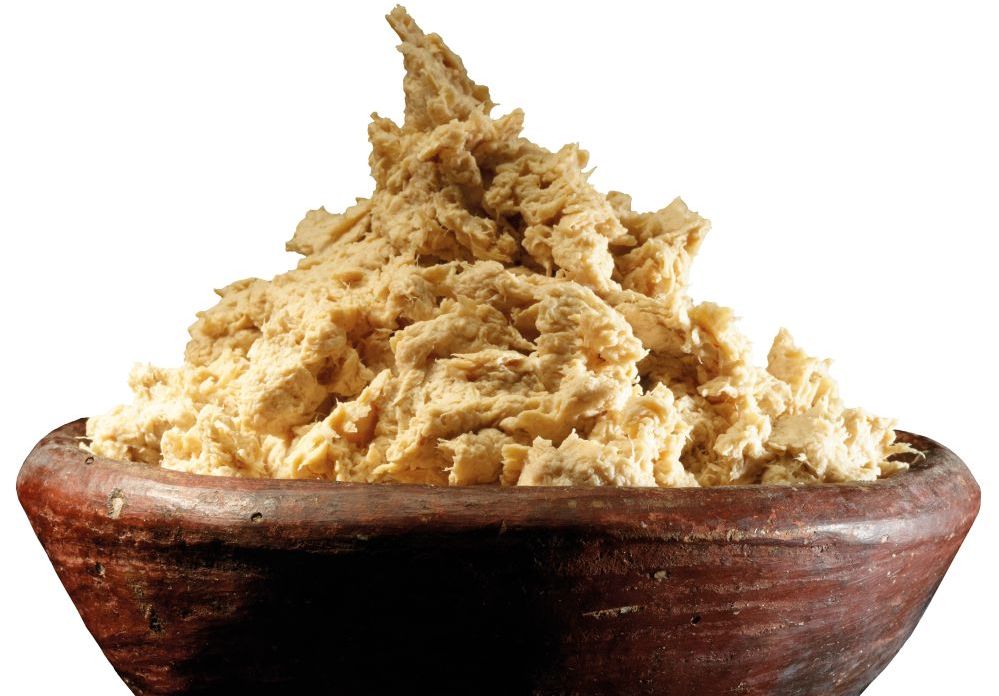Cargill has invested an undisclosed sum into Glasgow-based alt protein startup ENOUGH as a “top up” to its recent series C round and signed commercial offtake agreements to use and market ENOUGH’s ‘ABUNDA’ mycoprotein.
The investment is “on top of the [$43.6 million series C] funds raised last year” and will give Cargill “a minority single digit holding in the company,” ENOUGH CEO Jim Laird told AgFunderNews.
Co-located with a Cargill starch facility that supplies it with fermentable sugars as a feedstock, the ENOUGH facility in Sas van Gent in The Netherlands harvests its fungal biomass (mycoprotein) and removes most of the water via centrifuge. It then supplies that sugary wastewater to Cargill’s bioethanol facility next door in a zero-waste process.
As part of their expanded strategic partnership, Cargill will co-create foods containing ABUNDA mycoprotein by leveraging its formulations and applications capabilities and portfolio of plant-based proteins, texturizers and fats, said ENOUGH, which is partnering with Cargill in the EU-funded PLENITUDE consortium.
“ENOUGH will continue to benefit from Cargill’s global footprint and feedstock technology expertise to scale up faster in Europe and beyond.”
Poultry-style products the ‘main area of focus’
Laird told AgFunderNews: “Cargill has high scale and in-house capability for applications. They also have interest as part of their ingredients solutions where they can combine ABUNDA with other Cargill functional ingredients.”
Asked whether Cargill would serve as a distributor for ABUNDA, he clarified: “ENOUGH will continue to deal directly with our major target channels and customers. Our route to market is as a B2B ingredient to CPG and foodservice.
“We see that ABUNDA mycoprotein enables better products in a range of applications. We see real product quality differentiation in poultry-style products, and that has been a main area of focus.”
“Mycoprotein is an emerging ingredient with a disruptive role to play due to its many benefits including a meat-like texture, protein profile, scalability and sustainability.” Belgin Kose, managing director, Cargill Meat and Dairy Alternatives

Doubling production capacity
Founded in 2015 as 3FBio, ENOUGH makes ABUNDA from the same fungi strain as Quorn (Fusarium venenatum) via biomass fermentation.
It began production at Sas van Gent last summer and is currently working to double production capacity from 10,000 to 20,000 tons a year.
Customers include Unilever, which is testing ABUNDA in its Vegetarian Butcher range; Dutch poultry processor Plukon Food Group; and manufacturers supplying UK retailer Marks & Spencer.
“We’ve got a nice dialogue going with some North American customers,” Laird told us last year, “but the majority of the product will be going to Europe, as frozen distribution going across the North Atlantic doesn’t make much sense from a cost or sustainability perspective.”

‘What we’re doing is very scalable’
While the grim financials at Beyond Meat and the string of alt meat startups going out of business in recent months have dominated the headlines, “for every horror story in this market, there are also success stories out there,” claimed Laird.
“My view of the market is that we had a bit of a hype cycle, but the underlying trends [driving alt protein] are there. One in five Whoppers at Burger King in Germany is now plant based, and in Belgium, it’s one in three.”
“I’m not your average 25-year-old startup CEO,” added Laird, a CPG veteran who managed Quorn’s international business in 2008-2011. “We’ve been developing this technology for eight years. There are capex costs, but what we’re doing is very scalable. We take a 200,000-liter tank full of water, sugar and micronutrients, we inoculate it with fungus and it doubles in size every four to six hours. In a couple of days we get up to [critical mass] and then we start to harvest on a continuous basis.”
The whole food ingredient emerging from the fermentation tank can be combined with fat, flavors and a binder such as potato protein to make a wide range of products from ‘whole muscle’ type alt chicken to pork substitutes, he said.





